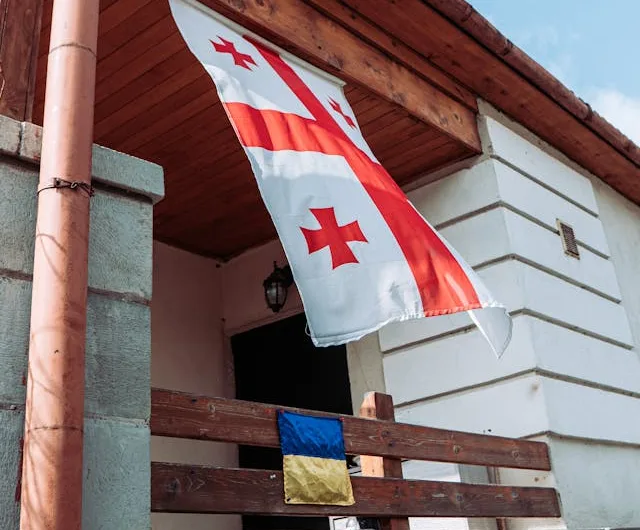Georgia finds itself at a pivotal moment as it prepares for a significant political shift, welcoming a former Manchester City footballer as the nation’s new president. This unusual choice comes amid a backdrop of substantial public demonstrations advocating for EU integration, reflecting a profound transformation within the country’s political fabric. For the last 16 days, Tbilisi, the capital city, has been the epicenter of pro-EU protests — a clear expression of the people’s desire for closer ties with the European Union. These protests have not only highlighted the public’s discontent with the current political trajectory but have also underscored the national aspiration for democratic reforms and closer alignment with European standards and values.
The footballer’s appointment as president, a move viewed by some as unorthodox, aligns with a broader strategy to appeal to a younger, more globalized segment of the population. His international sports career is seen as beneficial for diplomatic relations and potentially rejuvenating the political image of Georgia. This shift demonstrates an evolving political landscape that embraces change, reflecting the societal push towards modernization and European integration.
Amidst these developments, concerns loom over how these changes will be received by the existing political establishment and neighbouring countries, most notably Russia, which has historically exerted significant influence over Georgia. The outcome of this political shift remains uncertain, as the nation navigates its complex geopolitical environment while striving to maintain internal cohesion and stability.
Perspectives
Perspective 1: The perspective of enthusiastic supporters of the new president, particularly the youth, is one of optimism and hope for change. They see the footballer’s ascension as a break from traditional political figures and an opportunity to foster a government that is more in sync with modern, European values. This demographic is enthusiastic about the fresh international perspective he could bring, viewing it as a step towards a more progressive and globally integrated Georgia.
Sources:
BBC
Perspective 2: Opposition groups and more conservative elements in Georgian society have raised concerns about the adequacy of the new president’s political experience. They argue that effective leadership requires more than charisma and international fame, expressing fears that his presidency may lack the political acumen necessary for handling the country’s complex internal and external challenges. Their apprehensions also include potential overreliance on symbolic gestures rather than substantive policy reforms.
Sources:
BBC
Perspective 3: Regional analysts caution about the geopolitical implications of Georgia’s shift towards the EU. They stress that while this move could solidify ideological alignment with democratic values, it might also escalate tensions with Russia, which continues to exert considerable influence in the region. There is a concern that such political realignment may provoke economic and security retaliations, complicating Georgia’s path towards peaceful progression.
Sources:
BBC
